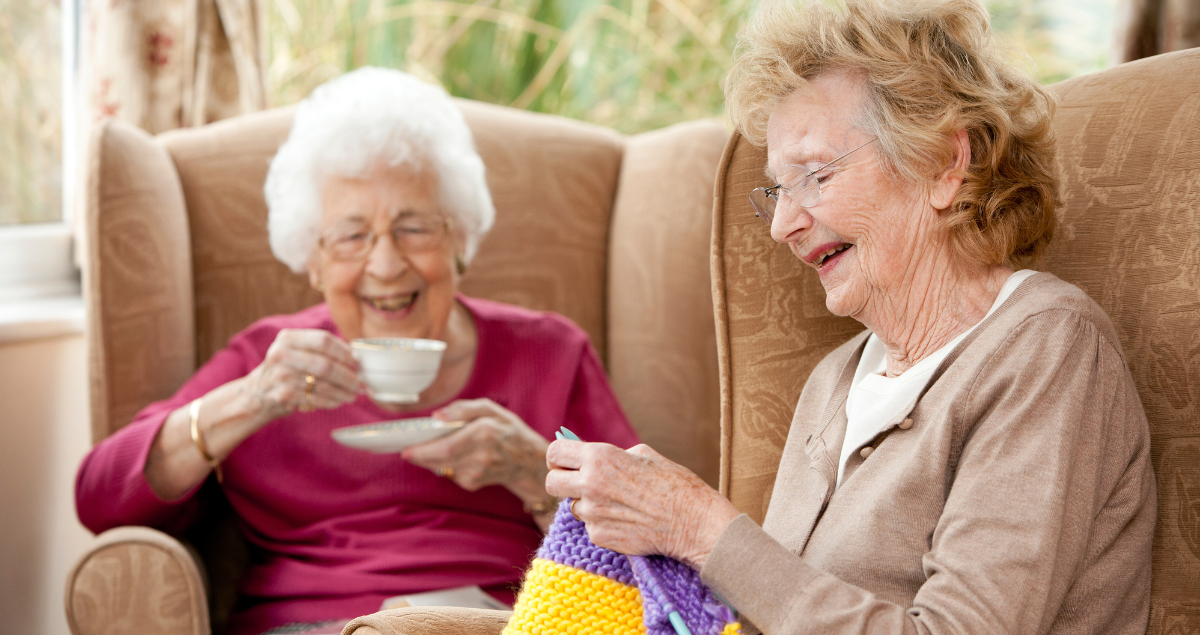Finding New Purpose: How to Avoid Depression After Retirement

Retirement is a time full of big changes – from a new home to new friends, hobbies and a new, perhaps slower, pace of daily life. For some older adults, all these changes can cause them to feel like they are losing themselves, leading to depression after retirement. It’s important to take care of your mental health to ensure you stay happy, healthy and connected to your community during these golden years. Here are some helpful tips for taking care of yourself to avoid depression after retirement.
Take Care of Your Physical Health
Taking care of your mind starts with taking care of your body, as mental and physical health are closely tied to each other. You don’t need to be a fitness expert, just start with the basics:
- Having a healthy diet.
- Staying active.
- Getting enough sleep.
- Staying hydrated.
Staying active can help boost your mood and avoid depression after retirement in addition to other health benefits. Try to find an activity you enjoy that is age-appropriate and suitable for your physical abilities. Bonus if it’s one you can do with friends. You could walk, stretch, dance, join a group class or do water aerobics. The possibilities are endless. Even everyday physical activity, such as light housework or gardening, can count as exercise.
Establish a Routine
One of the biggest changes that comes with retirement is the loss of your regular schedule and routine. Having days without structure can make you feel listless, negatively affecting your mental health.
The good news? Now is the time to create a new schedule! Fill it with whatever you like – from pursuing your interests to just blocking out time to spend with friends. Creating a new routine can help you find structure and purpose – a sense of calm – in the midst of some big life changes.
Volunteering is an important way to engage in the community and enjoy the feeling that you are needed and are making a difference.
Finally, you’re never too old to learn. Take a class to learn a new hobby or deepen your knowledge in an area that interests you.
Lean on Your Community
Some cases of depression after retirement are a result of older adults feeling isolated in this new phase of life. It’s never too late to be proactive about spending time with friends or reaching out to new ones. Call a family member on the phone, schedule a lunch date with an old friend or join a social club at your retirement community. We all thrive in community, and retirement is a great time to make new memories with others at the same stage in their lives.
Feeling alone and not sure how to make a new friend? A social coordinator or other team member at your retirement community is a great resource to help you get connected.
Seek Professional Help
While all these aspects can help boost your mental health, it’s sometimes necessary to get help from a professional. If you have the following symptoms of depression (courtesy of Mayo Clinic) after retirement, it may be time to check in with your family doctor:
- Feelings of sadness, tearfulness, emptiness or hopelessness.
- Angry outbursts, irritability or frustration, even over small matters.
- Loss of interest or pleasure in most or all normal activities.
Do not feel ashamed to reach out for help – you are not alone, as many older adults experience depression after retirement. If you or someone you know is struggling or in crisis, help is available. Call or text 988 or visit 988lifeline.org.
Stay Connected at Advent Christian Village
For our community members, Advent Christian Village embodies home in every sense of the word. Friendships blossom every day as they connect with like-minded friends through our active faith community, hobby clubs and exciting social events and concerts. At ACV, you’ll experience a community where neighbors truly care for one another, and you can age with meaning and purpose.
Want to experience a new kind of retirement for yourself? Call today to schedule a tour – we’d love to show you what home could look like for you.
This blog is not intended as medical advice. If you have questions, please speak with your doctor.



